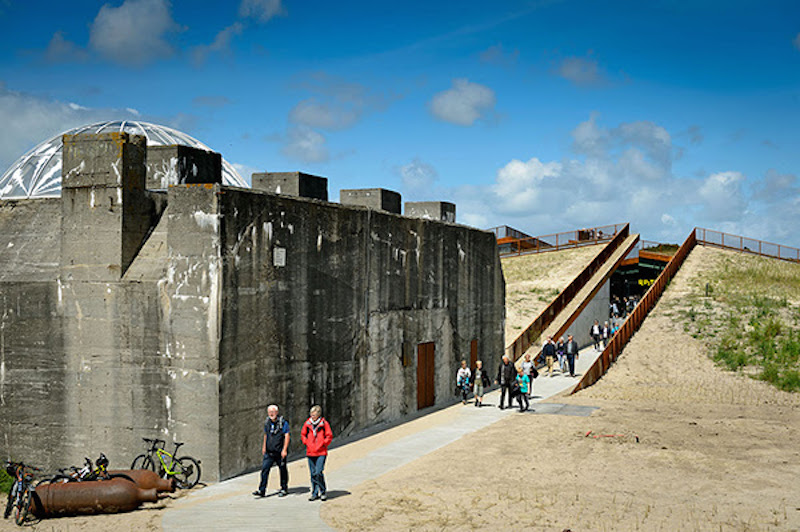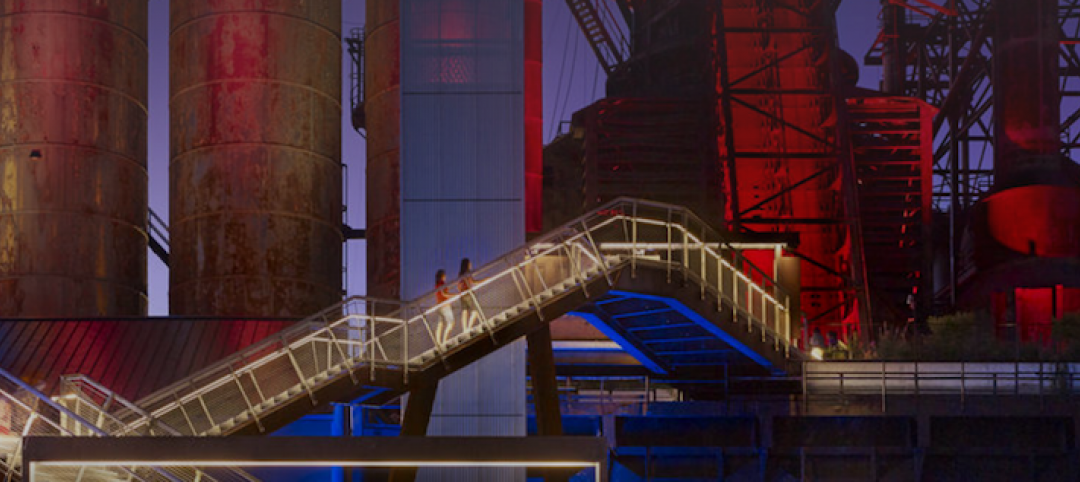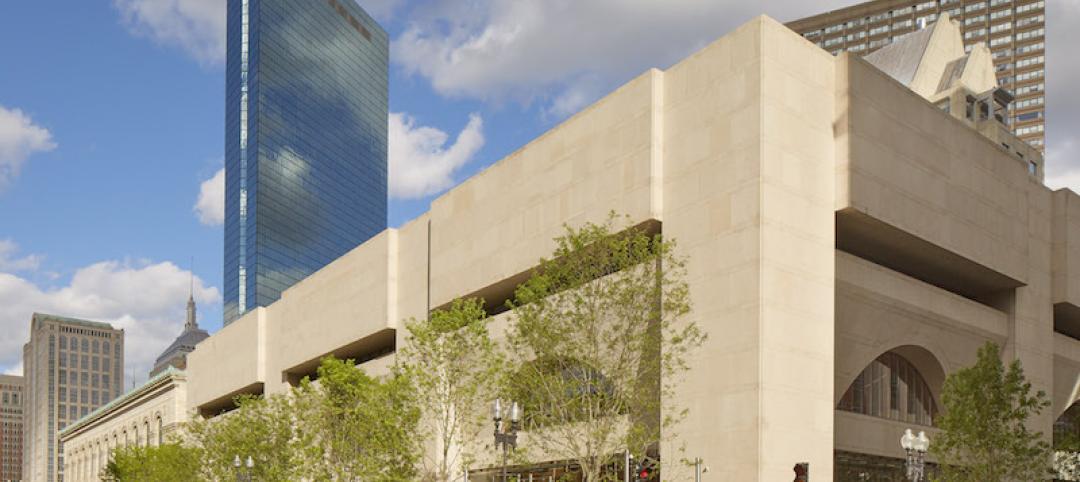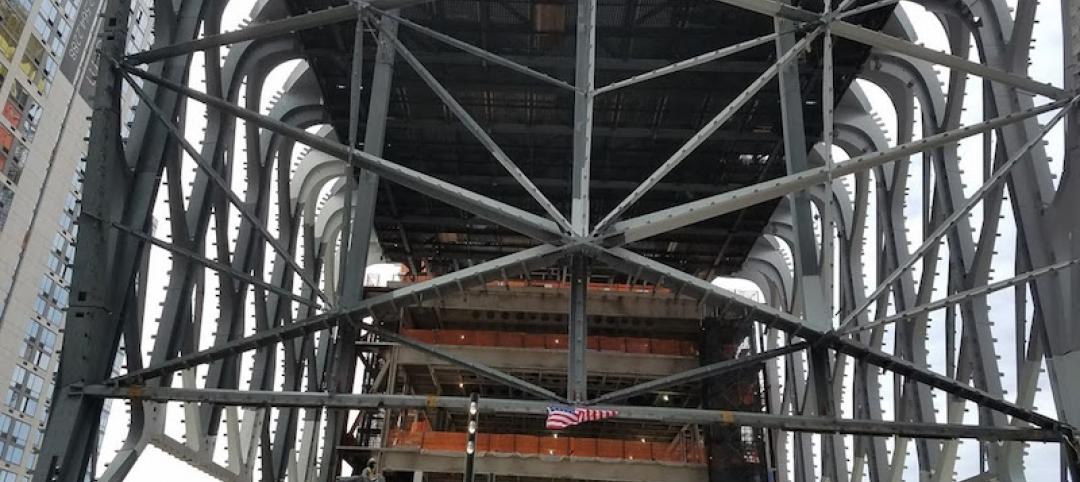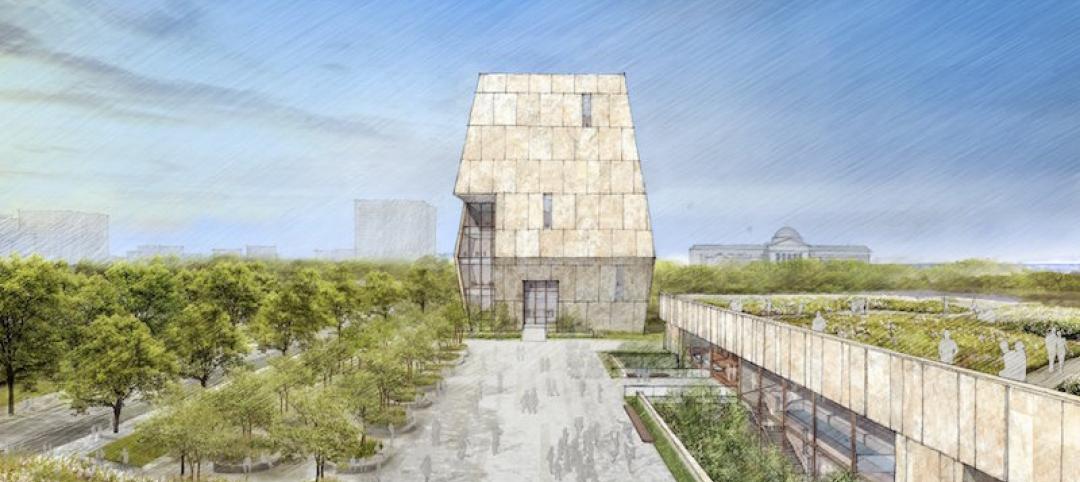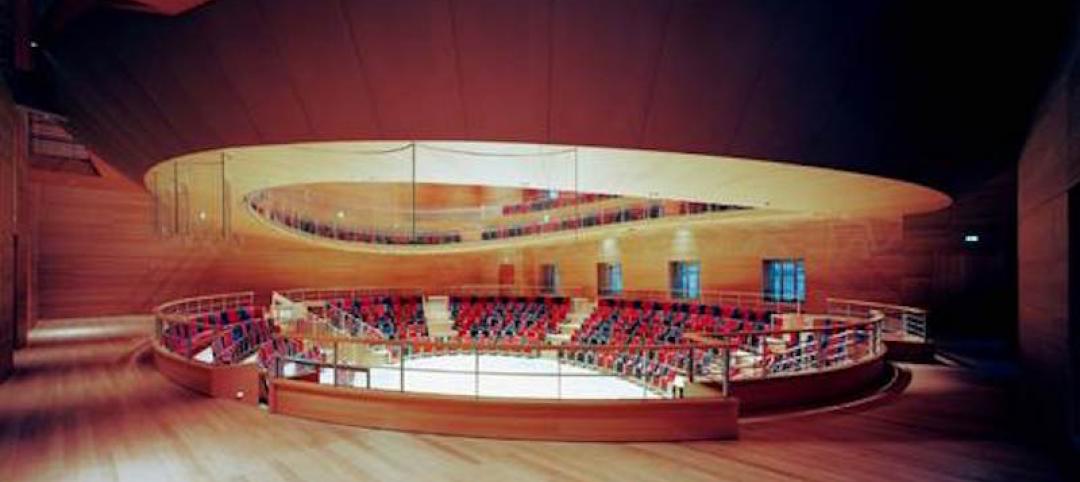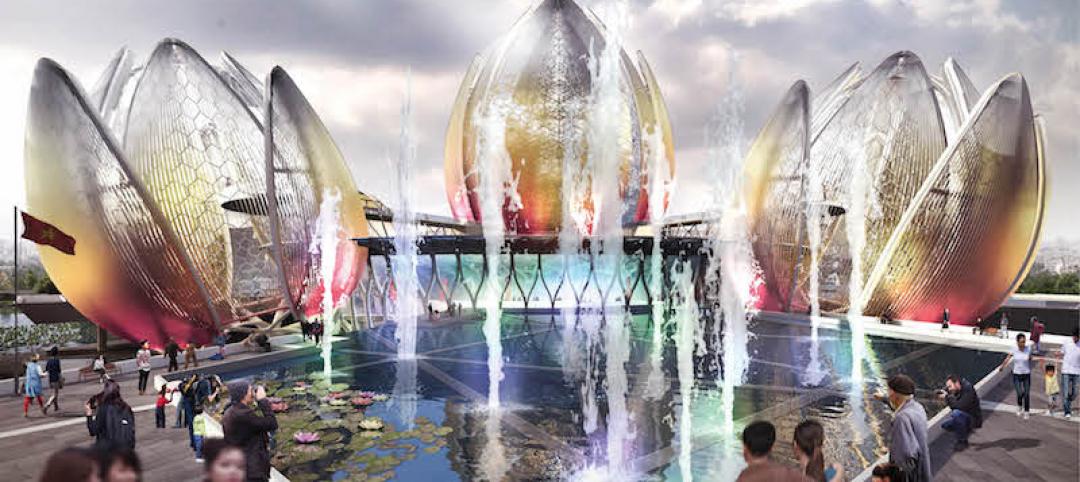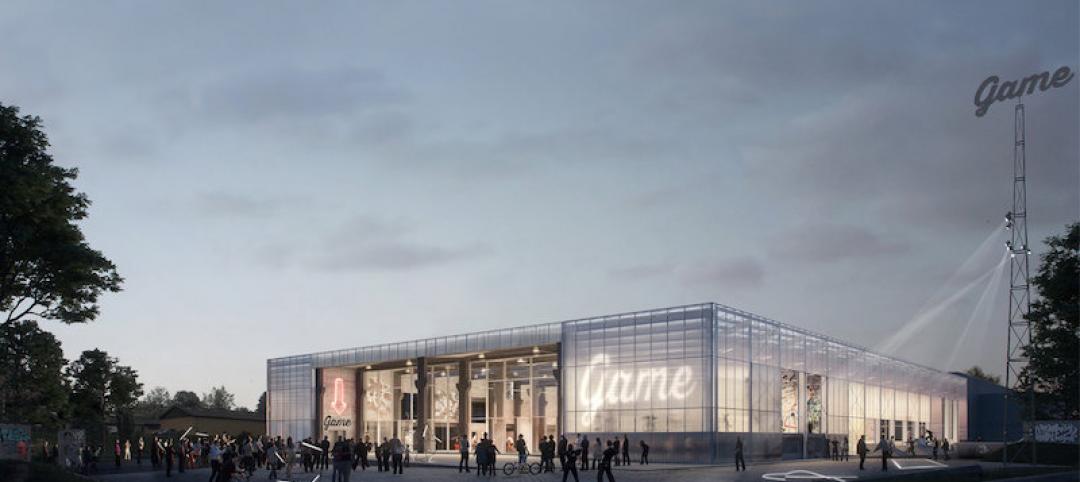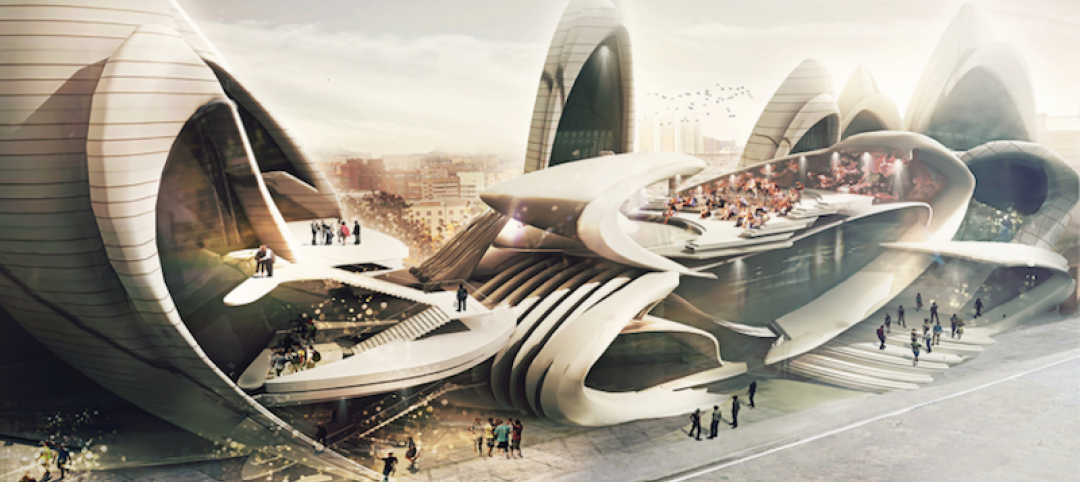Bjarke Ingels Group (BIG), in partnership with Varde Museums and Tinker Imagineers, has transformed and expanded a historic German World War II bunker into a 2,800-sm (30,138-sf) cultural complex called TIRPITZ, embedded into the protected shoreline of Blåvand along Denmark’s western coast.
The facility, which opened earlier this month, expects to attract 100,000 visitors annually. It is designed as a subtle counterpoint to the stark construction of the original artillery fortress.
The complex appears at the intersection between a series of landscape cuts. Its exterior paths cut into the dunes, and descend into a central clearing that brings daylight and air into the complex.
Six-meter-tall glass panels face an outdoor central courtyard that provides visitors with access into three permanent and one temporary underground galleries, designed by Tinker Imagineers.
These include “Army of Concrete,” which recounts human stories against the backdrop of Hitler’s massive defense project, the Atlantic Wall, of which this bunker was a component. “Gold of West Coast” purports to be Western Europe’s most comprehensive exhibit of amber, presented in a forest-like setting complete with recreations of 40-million-year-old trees weeping resin. And “West Coast Stories” re-enacts 100,000 years west coast history, and turns into a nighttime 4D theater twice an hour.
The walls of the exhibition rooms are made of concrete that was cast onsite. They support roof decks—engineered by the Swiss firm Lüchinger+Meyer—that cantilever out by 36 meters. The largest roof deck weighs nearly 1.1 tons.
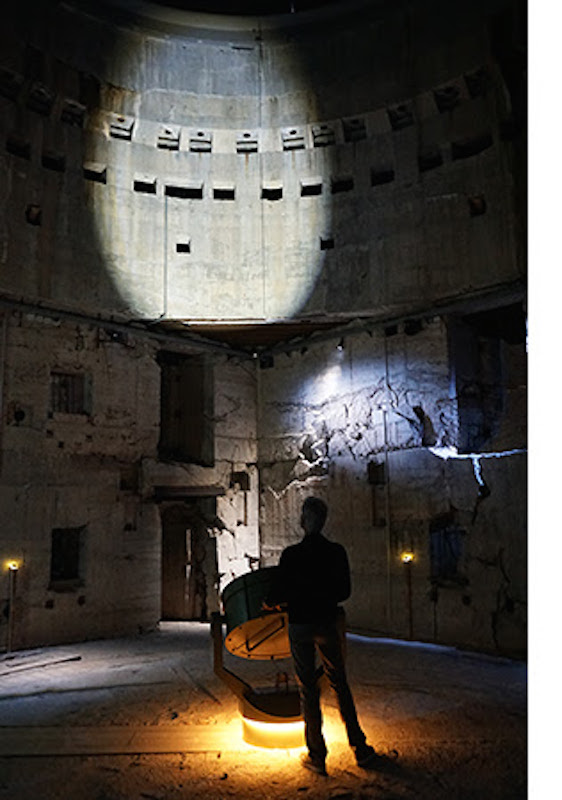
Visitors can access the inside of the bunker through a tunnel that connects it to the underground gallery space. Image: Erik Bar
From the sunken galleries, visitors access the bunker through a tunnel. In the dark, they can play with light and shadowing that reveal how the bunker once functioned.
“TIRPITZ is a unique opportunity to combine nature and culrture in a spectacular fashion,” says Erik Bär, Tinker Imagineers’ Partner and Director.
The Building Team included AKT, Kloosterboer Décor, BIG IDEAS, Fundendt, COWI, Svend Old Hansen, Gade & Mortenson Akustik, Bach Landskap, Ingeniøgruppen syd, Kjæhr & Trillingsguuard, and Pelcom.
TIRPITZ bunker in Denmark began construction in 1944 as part of Hitler’s Atlantic Wall defenses that stretched from Nordkapp, Norway, to the Pyrenees. It was meant to protect the sea route to Esberj harbor. The war ended before the bunker was completed, and it was converted into a small museum.
Seventy years later, construction of the TIRPITZ cultural center commenced. Its financiers include A.P. Møller and Chastine Mc-Kinney Møller Foundation, Nordea Foundation, Augustinus Foundation, and Varde Municipality.
Related Stories
Building Team | Jun 27, 2017
Bruner Foundation announces 2017 Rudy Bruner Award for Urban Excellence gold and silver medalists
The SteelStacks Arts and Cultural Campus in Bethlehem, Pa., receives the gold medal and $50,000.
Libraries | May 31, 2017
A year after its facelift, Boston’s Public Library is relevant again
Visitors are flocking to its brighter, connected halls, which now include retail and digital components.
Cultural Facilities | May 25, 2017
The Shed, a multi-arts center on New York’s west side, moves forward in construction and funding
The facility, designed for maximum programming flexibility, includes a massive movable shell.
Cultural Facilities | May 4, 2017
Obama Foundation reveals first look at the Obama Presidential Center
The design comprises three buildings set in the public space of Jackson Park on Chicago’s South Side.
Performing Arts Centers | Mar 6, 2017
An oval defines the Frank Gehry-designed Pierre Boulez Saal concert hall
The hall hosted its debut concert on Saturday, March 4 with a performance by the Boulez Ensemble.
Cultural Facilities | Mar 2, 2017
The Hanoi Lotus Centre will bloom from the middle of a lake
The building will act as a symbol of growth and prosperity for the city of Hanoi.
Cultural Facilities | Jan 30, 2017
Former windmill factory proposed as new ‘vibrant culture house’
The transformed building would provide space for street sports, street culture, and street art.
Cultural Facilities | Dec 14, 2016
Institutions aggressively targeting private donors to fund construction projects
Capital campaigns abound, even though government financing still plays a vital role.
Cultural Facilities | Oct 27, 2016
Zaha Hadid Architects’ Urban Heritage Administration Centre takes its design from the surrounding desert
The futuristic curves that have become a staple for ZHA-designed buildings are also on full display.
Cultural Facilities | Sep 19, 2016
International competition recognizes insect-inspired design for Moscow Circus School
The proposal would make the school’s activities more transparent to the public.


